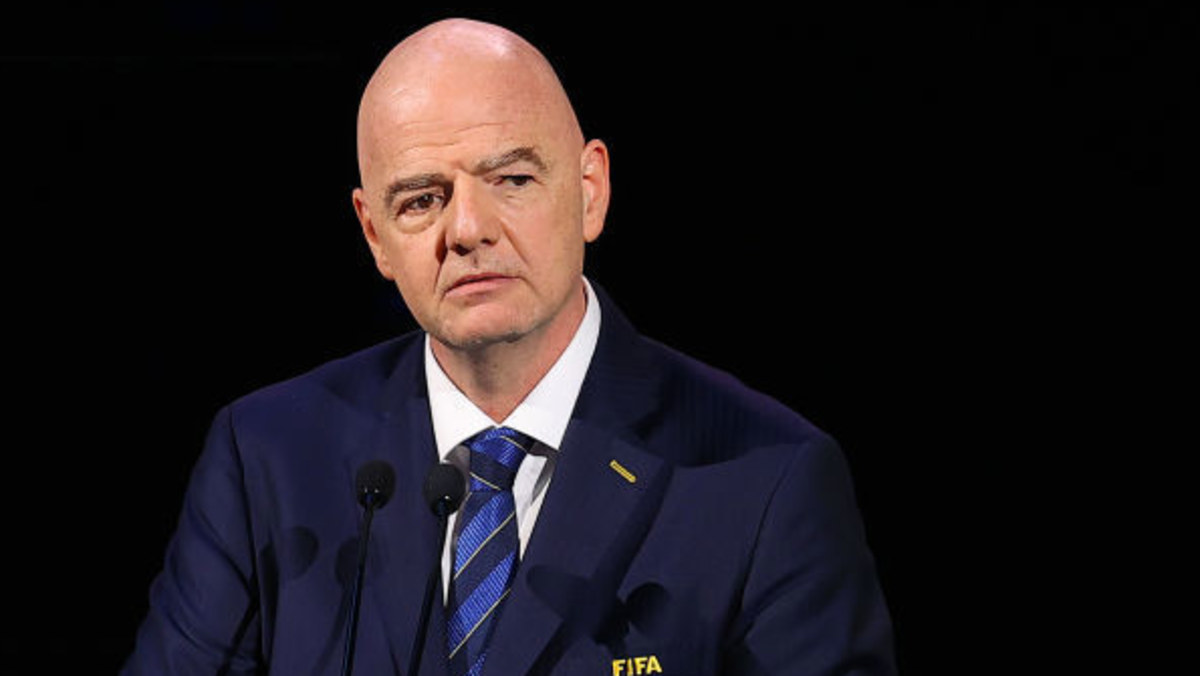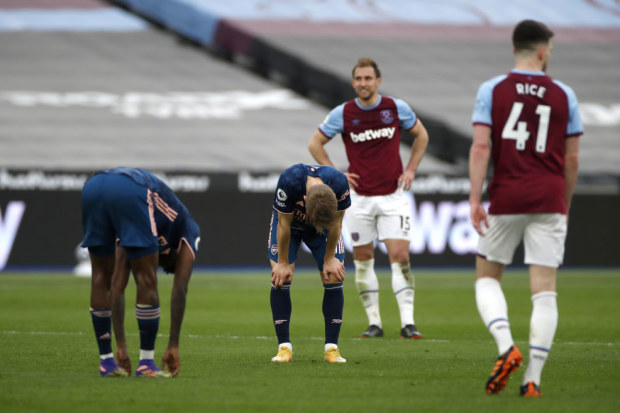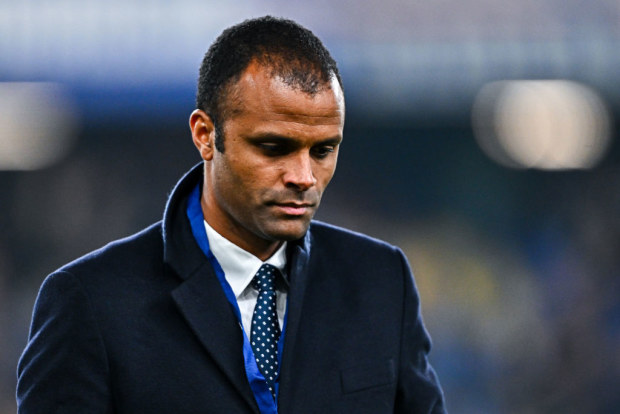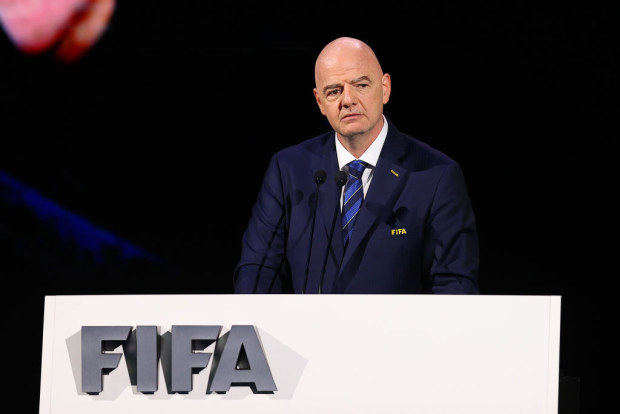
FIFA has been warned that players will “take matters into their own hands” and go on strike if nothing is done to address concerns over the excessive playing schedule.
Football’s governing body has been issued warnings from players and national league teams regarding their proposed decision to expand the already congested men’s competition schedule to debut the 32-team Club World Cup next season.
Many players in the English Premier League have had little time off between the end of the 2023 season and the start of international camps – in preparation for tournaments including the Euros and the Olympics – with multiple teams also flying across the globe to compete in exhibition matches.
READ MORE: Bitter Tszyu blow as doctor calls Aussie’s fight off
READ MORE: ‘Guerilla warfare’ behind surprise Blues move
READ MORE: Claims of ‘sinister’ Athletics Australia play whacked
FIFA was criticised for “unilateral decisions that benefit its own competitions and commercial interests” in a letter sent by the global players union FIFPRO and the World Leagues Associations – that was provided to the Associated Press earlier this month.
The letter said it is “inherently abusive” for FIFA to continue tournaments to the international calendar while forcing players and global leagues to adapt.
FIFA has been urged to reschedule the proposed Club World Cup, a tournament that will feature Champions League finalists Real Madrid and Borussia Dortmund as well as Manchester City and Bayern Munich.
Officials from the Premier League, LaLiga, Serie A, and PFA will meet to discuss measures to counteract FIFA’s proposed developments on Saturday evening (AEST).

Arsenal’s Martin Odegaard (centre) and Nicolas Pepe (left) crouch over tired after the Premier League match. PA Images via Getty Images
FIFA have denied claims that they will not consider rescheduling the tournament.
FIFPRO’s Europe president David Terrier declared there was “an emergency” around the growing mental and physical fatigue of the sports’ athletes, calling for a regulation to be created to cap the number of games players can participate in.
“We are faced with one of the most urgent problems with our sport, which has risen through a failure of government,” Terrier said.
“It has given rise to dangerous mental and physical fatigue. The problem is the ones who listen and the ones who don’t. As a union, it is the most important part of our work to listen to our members – to listen is to accept responsibility.
“Players do speak and communicate with us and it is absolutely clear, there is an emergency – we are in danger.
“Players have gone beyond the limit and the international timetable is full to the brim. What is FIFA’s response? More matches, more competitions, more money – without any guarantee for the players,” he continued.
“FIFA doesn’t listen as a body. Their decisions affect all of the ecosystem, but they make unilateral decisions and it is a failure of governance and we can no longer accept it.
“It is only by listening we will take things into our own hands, we won’t exclude any kind of possibility whatsoever.”
A workload and recovery season review conducted by FIFPRO found that more than 50% of respondents said they had been forced to play while carrying an injury during international competitions, while 82 per cent of managers said they had knowingly started a player that they knew required rest or rehabilitation.

Maheta Molango, Professional Footballers’ Association chief executive. Getty
Professional Footballers’ Association chief executive Maheta Molango said he believes a strike action is not off the cards for players.
“I can tell you a situation not even 10 days ago where I went to a dressing room directly affected and I said: ‘I’m happy to be here and bark a bit but ultimately it’s down to you. How far would you like to go?'” said Molango.
“Some of them said, ‘I’m not having it, we may as well strike.’ Some said ‘What’s the point? Yes I’m a millionaire but I don’t even have time to spend the money.'”
“It’s not even the union who has said it, it has been Jurgen Klopp and Pep Guardiola. We have reached a point where we cannot discount any action.”
“Some of the changes in England with the domestic calendar are forced by what FIFA and UEFA have done. What has happened, is even further confirmation something has to be done but also it’s not affecting just the top players.
“We will always try to exhaust all diplomatic avenues, we have sent a letter, we have received an answer but unfortunately time is against us.
“Sometimes between grown up people, despite trying very hard to find solutions you need a third party to decide, maybe an arbitrator or a tribunal.”
FIFA reportedly believes it has taken into account player welfare within there scheduling programme, according to BBC Sports, but Molango remains doubtful.
Molango noted that players are also accounted for within external FIFA competitions like the Premier League Summer Series.
“Some of the changes in England with the domestic calendar is forced by what FIFA and UEFA have done. What has happened, even further confirmation something has to be done but also that it’s not affecting just the top players.
“We will always try to exhaust all diplomatic avenues, we have sent a letter, we have received an answer but unfortunately time is against us.
“Sometimes between grown up people, despite trying very hard to find solutions you need a third party to decide, maybe an arbitrator or a tribunal.”

Gianni Infantino, President of FIFA speaks on stage during the 74th FIFA Congress 2024. FIFA via Getty Images
FIFA president Gianni Infantino addressed the issue of the global football calendar at the sporting body’s congress earlier this month, however, has yet to announce a change.
“FIFA is organising around one per cent of the games of the top clubs in the world. 98-99 per cent of the matches are organised by the different leagues, associations, confederations,” Infantino said.
“FIFA is financing football all over the world. The revenues that we generate are not just going to a few clubs in one country, the revenues that we generate are going to 211 countries all over the world.
“Our mission is to organise events and competitions, and to develop football around the world because 70 per cent of the Member Associations of FIFA would have no football without the resources coming directly from FIFA.”

